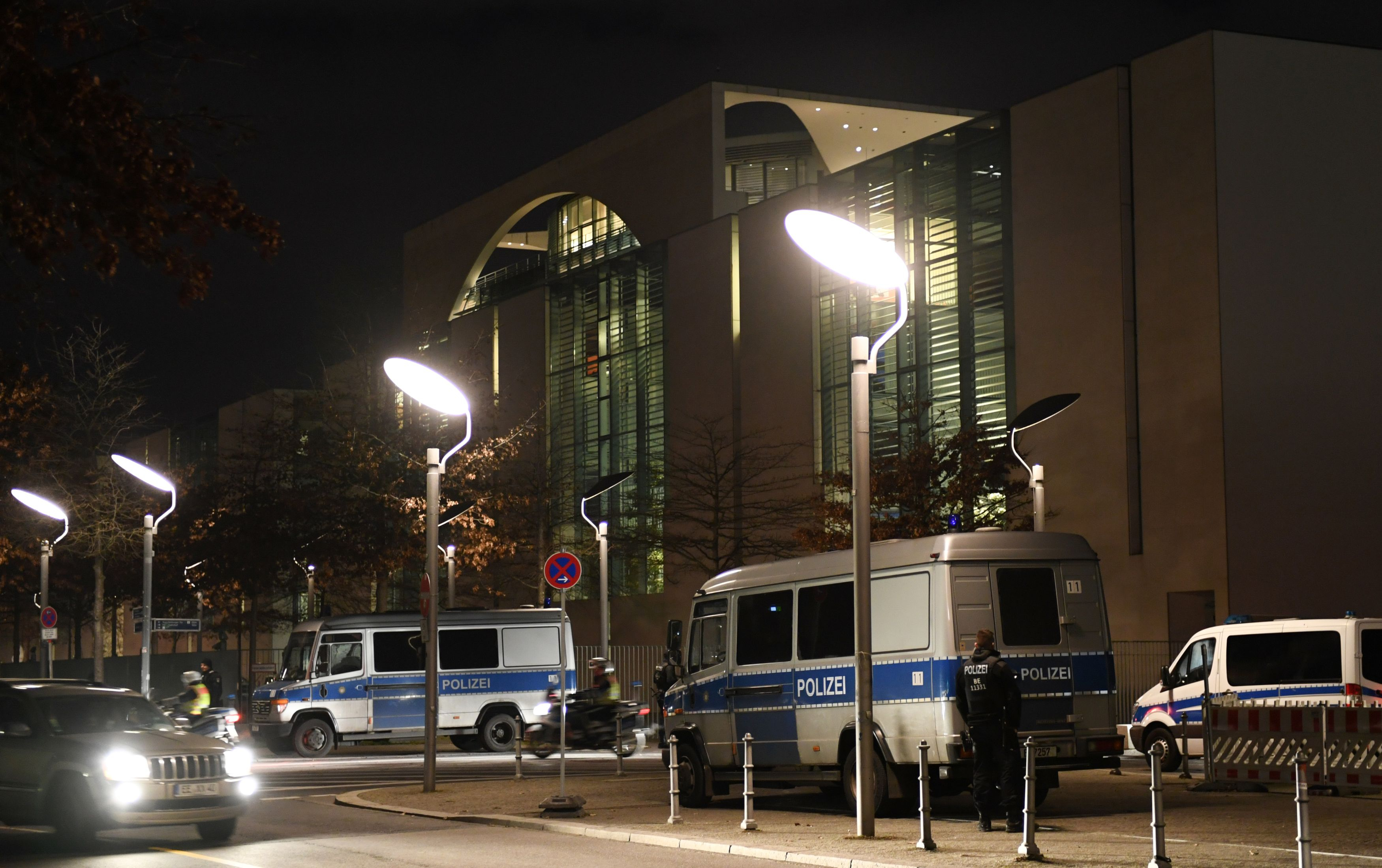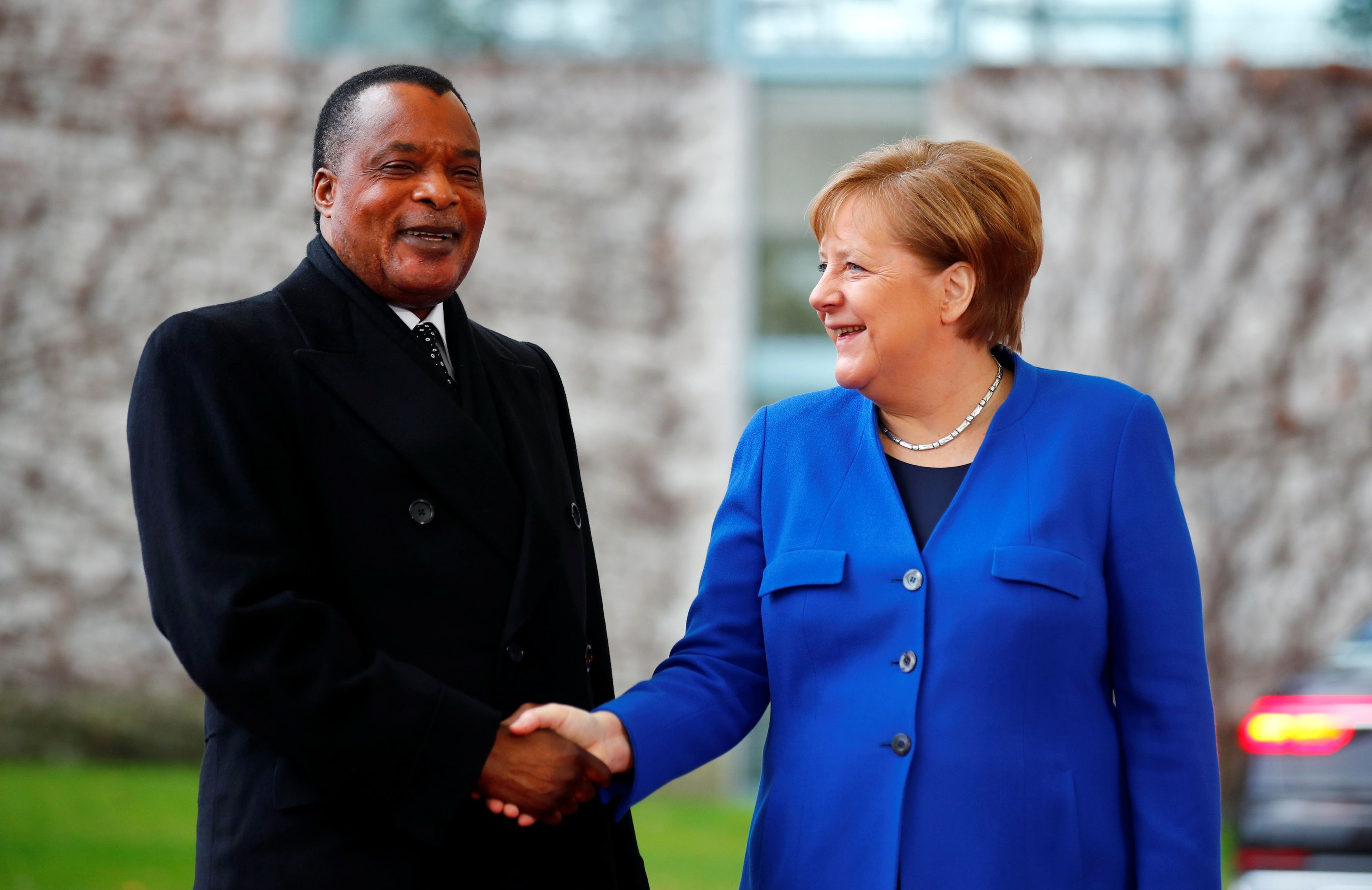World leaders including the presidents of Turkey, Russia and France opened talks on Sunday at a summit hosted by German Chancellor Angela Merkel aimed at ending the war in Libya. Held under the auspices of the United Nations, the summit's main goal is to get foreign powers wielding influence in the region to stop interfering in the war, be it through the supply of weapons, troops or financing.
Russian President Vladimir Putin and Turkish President Recep Tayyip Erdogan attended the talks in Berlin where they were joined by French President Emmanuel Macron, British Prime Minister Boris Johnson, Egyptian President Abdel Fattah el-Sisi, U.S. Secretary of State Mike Pompeo and others.
The leaders of both warring factions – strongman Khalifa Haftar and the head of Tripoli's UN-recognized government Fayez al-Sarraj – are also expected at the first such gathering since 2018.
"We call on all parties concerned to redouble their efforts for a sustained suspension of hostilities, de-escalation and a permanent ceasefire," said a draft of a communique to be discussed at the summit, reviewed in advance by Reuters.

Police cars are sparked close to the Chancellery, the host of the Libya summit in Berlin, Germany, January 18, 2020. /Reuters Photo
Police cars are sparked close to the Chancellery, the host of the Libya summit in Berlin, Germany, January 18, 2020. /Reuters Photo
The UN hopes all sides will sign up to a plan to refrain from interference, and commit to a truce that leads to a lasting end to hostilities, according to the draft.
Hours ahead of the meet, pro-Haftar forces upped the ante by blocking oil exports at the war-ravaged country's key ports, crippling the main source of income in a protest against Turkey's decision to send troops to shore up Sarraj's Tripoli-based Government of National Accord (GNA).
Tribesmen in areas controlled by Haftar's Libyan National Army (LNA) on Friday stormed the eastern Zueitina port and announced the closure of all terminals under LNA control.

German Chancellor Angela Merkel welcomes Republic of the Congo's President Denis Sassou Nguesso at the beginning of the Libya summit in Berlin, Germany, January 19, 2020. /Reuters Photo
German Chancellor Angela Merkel welcomes Republic of the Congo's President Denis Sassou Nguesso at the beginning of the Libya summit in Berlin, Germany, January 19, 2020. /Reuters Photo
A draft of the final communique of the Berlin summit on Sunday recognized Tripoli-based state oil company NOC as the sole legitimate entity allowed to sell Libyan oil, which will be discussed at the summit.
The summit also called for all parties to refrain from hostilities against oil facilities, said the draft.
Putin: Don't lose hope that Libya conflict will be solved
Putin on Sunday said he hoped that the Berlin summit on Libya could bring further progress and that Moscow's peace efforts had yielded results.
"We don't lose hope that dialogue will continue and the conflict will be solved," Putin said before meeting Erdogan on the sidelines of the conference.
Putin said that Russia and Turkey had taken a "very good step" by urging Libyan factions to stop fighting, adding that large military actions had been stopped in Libya.
Erdogan urges Libya's Haftar to end aggressive stance
Haftar must end his aggressive stance to pave the way for a political process in the North African country, Erdogan said on Sunday at the summit.
"To implement the other stages of the political process and solution, Haftar's aggressive stance must come to an end," Erdogan said in comments broadcast on Turkish television at the start of a meeting with Putin.

Libyan protesters shout slogans during a demonstration against the Turkish parliament's decision to send Turkish forces to Libya, in Benghazi, Libya, January 3, 2020. /Reuters Photo
Libyan protesters shout slogans during a demonstration against the Turkish parliament's decision to send Turkish forces to Libya, in Benghazi, Libya, January 3, 2020. /Reuters Photo
GNA, headed by Fayez al-Sarraj and formed in 2016 after a UN-sponsored agreement, is opposed by an eastern administration championed by military strongman Haftar.
The latter takes his legitimacy from a parliament elected in 2014 that took refuge in eastern Libya after a western militia coalition seized control of the capital.
German Foreign Minister Heiko Maas traveled to Benghazi, Libya on Thursday to meet with Haftar to persuade him to support the fragile ceasefire. "We have to make sure Libya doesn't become a second Syria," Maas said.
Libya has been in turmoil since its former leader Muammar Gaddafi was killed in 2011, with the support of NATO-backed forces.
In December, Turkey signed a controversial agreement with the Libyan government, which would allow Ankara to undertake major gas exploration off the coast of Libya in the Mediterranean Sea. That agreement would likely be nullified if General Haftar's forces prevail.
In addition to a ceasefire, the German government hopes to broker a commitment from conference attendees to honor a UN embargo against sending arms to Libya as well as to reduce further outside interference.
The civil war has had a destabilizing effect on neighboring countries, and Libya has become a center of human smuggling operations for migrants seeking to cross the Mediterranean to Europe. The UN says the conflict has killed hundreds of people and forced thousands to flee.
(Ira Spitzer also contributes to the story.)
(Cover: A general view of the Chancellery before the Libya summit in Berlin, Germany, January 19, 2020. /Reuters Photo)